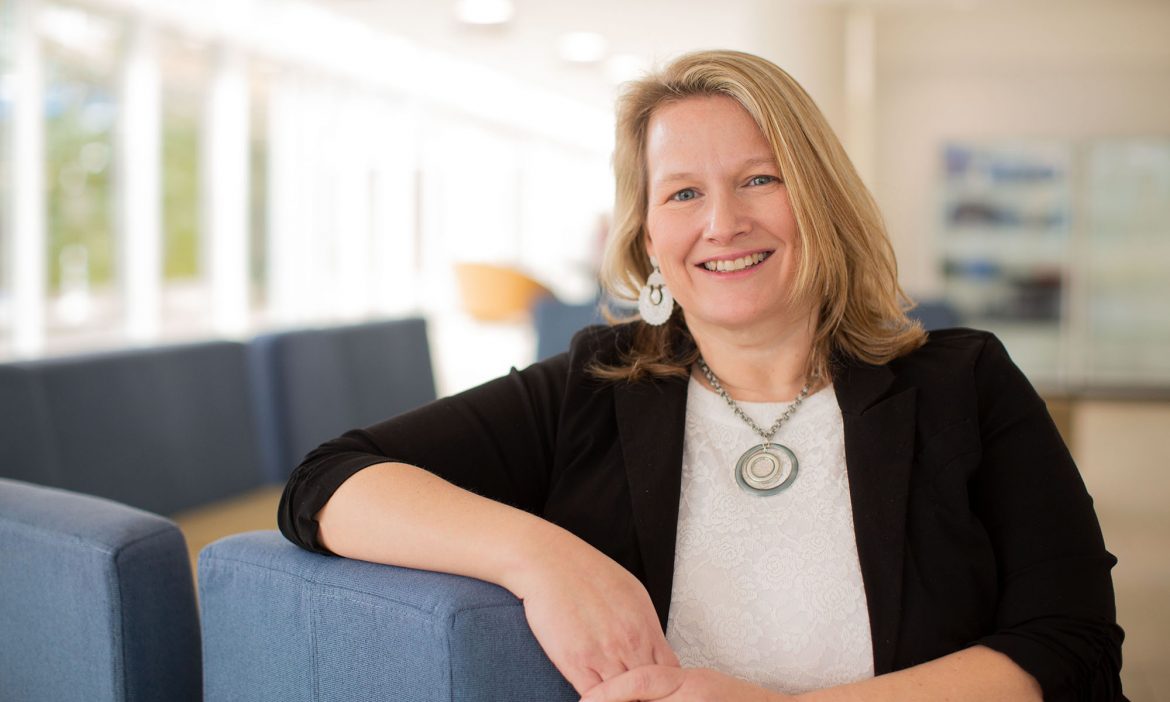For most of us, a warm house, a made bed, and food on the table are part of our everyday lives. Unfortunately, many of our neighbors and fellow community members can’t say the same.
In Tennessee, nearly 8,000 people are homeless and approximately 3,000 live in unsheltered conditions. The state’s rate of unsheltered people in families with children is 32.6 percent, one of the highest in the nation.
A chance encounter leads to advocacy
For Heather Kwon, a BlueCross finance information systems manager, helping those less fortunate is a personal mission. An experience in downtown Chattanooga opened her eyes to the problem of homelessness and inspired her to make a difference.
“I went to a show with a group of friends,” she recalls. “On our way in, we saw an elderly woman sitting on the curb, and I didn’t think much about it. After the show, she was still sitting there, and I noticed she had a plastic bag full of stuff. I started talking to her and realized she was homeless. She was scared and had just been released from the hospital and had nowhere to go.”
“I bought her an ice cream, and we sat there and talked,” she adds. “The next day, I got up and all I could think about was her. I never saw her again.”
Heather, a single mother of six, including four grown children and five-year-old twins, had previously been involved in homeless outreach through an organization called Relevant Hope, which distributed sleeping bags to people in need. Her chance encounter on that curb renewed her passion to dedicate what little free time she had to helping others.

Working with the Chattanooga Community Kitchen
When Relevant Hope was eventually absorbed by the Chattanooga Community Kitchen, Heather found more ways to work with the homeless community. She piloted an outreach program through the organization and began visiting residents living in homeless camps around the city, as well as making regular supply deliveries.
“I’m actually in the camps getting to know the people,” she says. I’m sitting around the campfire, under the bridge, wherever. I make sure that, first of all, their basic needs are met. Are they going to survive the night? Do they have a tent? Do they have water? Once you’ve met those needs, then you think about how you’re going to help them survive the week.”

The “rise and fall” of tent city
Heather also spent time volunteering at the Community Kitchen’s warming shelter, which is open from November through March. In 2018, after it closed for the season, she was instrumental in finding housing for those who needed it.
She met with people staying at the shelter and offered to help set them up in tents if they didn’t have anywhere to go after March.
The day the shelter closed, she had volunteers standing by. Eventually, she and her team were able to provide tents for more than 100 homeless people. Many were staying in a tent city near the Community Kitchen, which provides meals, laundry, showers and other critical services.

Heather and her volunteers were thrown a curveball when the city discovered that the tent city was constructed on contaminated land and, for the residents’ health and safety, asked them to leave. She and her team were undeterred, though, and they stepped into action to help, finding placements and offering support.
“The city considered everybody that had been at the tent city a displaced person, and so they got priority treatment in housing. Transitioning into a more permanent housing situation hasn’t been successful for everybody, but for a lot of people, it’s been the start that they needed.”
“I call it the ‘rise and fall of tent city,’” she adds.
Beyond tent city
Heather’s outreach efforts with Chattanooga’s homeless population led to her being recognized as the Community Kitchen’s 2018 Volunteer of the Year. While her busy schedule at home and at work doesn’t allow as much time to volunteer, she still sits on the board of the Chattanooga Regional Homeless Coalition and continues to coordinate outreach efforts whenever possible.
For Heather, service isn’t about the recognition.
“I never really thought much about homelessness before I started volunteering,” she admits. “In fact, I had a lot of stereotypical views. It really took working with the homeless, meeting them face-to-face and getting to know them as people, to have a better understanding of their circumstances. It’s been really eye-opening.”
Wherever her volunteerism takes her, Heather will always be an advocate for the homeless.
“They still deserve a place to lay their heads,” she says. “They just need assistance. I’ve had so many blessings, and if I can help somebody, then I’ll help somebody.”


 Saif is a graduate of Berry College and has worked in journalism and social media marketing for higher education and politics. He began his career as a Corporate Communications intern for BlueCross.
Saif is a graduate of Berry College and has worked in journalism and social media marketing for higher education and politics. He began his career as a Corporate Communications intern for BlueCross.